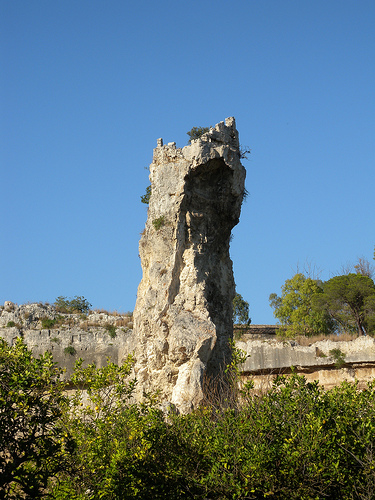Clay Perry, in his book “UNDERGROUND EMPIRE” (pages 199-201), relates the following:
“…Out of the clear sky of Utah, in June 1947 came a strange inquiry about reputed caverns near Syracuse, N.Y … Miss Opal Kemp of 220 Canyon Road, Salt Lake City, made the inquiry, first to the Syracuse Chamber of Commerce, then to the Secretary of state at Albany, and finally to me, through the circulation of one of her letters to officials of the State Museum and the State Department of Conservation, who had an idea that a spelunker from Pittsfield, Massachusetts, would know about them if anyone did.
“Miss Kemp had written that “a group of us are planning to visit the east this summer and wish to explore caverns known as ‘the East Caves of Syracuse.’ These caves are said to be the western entrance to the subterranean passage which extended under the Atlantic Ocean to the British Isles. Parts of the cavern system have collapsed – one as recently as 1928 – so that it is now impossible to travel in them. However, the entrances remain intact.”
“It took but a few minutes of research in the geology department of the State Museum to discover that there actually are some caves east of Syracuse, and that they are curious ones, indeed, and deep and some of them quite long, for in ‘The Geology of the Syracuse Quadrangle’ by Thomas Cramer Hopkins, published as ‘New York State Museum Bulletin 171,’ in 1914, there was found not only an elaborate study of the “East Caves of Syracuse,” but photographs taken, exteriorly, of some of the odd crevices, with people perched in them.
“These crevices are in Onandaga limestone, which is the hardest kind found in New York State and which spreads clear across the Syracuse quadrangle, in some areas forming large, level floors of rock swept free of residual matter by glaciers and the wash of water, and with deep clefts in the rock.
“One of these areas lies along the top of a cliff that borders what is known as the Clark Reservation, a state park, about three miles southeast of Syracuse…
“This officially confirms Miss Kemp’s long-distance tip on caves which, until June, 1947, had completely escaped the attention of present-day geologists, speleologists, and spelunkers as well as the usually alert boosters of the Syracuse Chamber of Commerce,
which brings us to the inland and western entrance of that prodigious reputed trans-ocean subway from the United States to the British Isles! But where, oh where is the other end?
“Curiously, as this inquiry was being made and investigation made of what would be the longest cavern in the world, there came news from across the waters of the Atlantic, of the exploration of what is said to be the deepest cavern in the world (that is, the deepest cave at the time of the writing of Perry’s book – Branton)!
“This is in a mountain near Grenoble, France, known as Dent de Crolles, which, according to a copyrighted article in the New York Herald-Tribune by John O’Reilly, a staff correspondent, is 2,265 feet deep, and its exploration to that depth by French speleologists, takes from Italy the long-held record for the deepest cavern, the Great Hole of Preta, near Verona, which is 2,193 feet deep. (Note: page 550 of the 1979 edition of the GUINESS BOOK states that the Gouffre Berger, near Isere, France, was explored to a depth of 3,743 feet in July of 1968. But today’s world record depth of a cave [circa the mid-1980’s that is, when the INNER EARTH ENTRANCES series first came out – Branton] is the Reseau de la Pierre Saint Martin. It was taken to a depth of 4,370 feet and “has been explored via a number of entrances, and has never been entirely descended at any one time.” – B.W.)
“‘America has some large caverns, but falls short of the record for depth,’ wrote Mr. O’Reilly, who made the mountain climb and cave descent in person, with Pierra Chevalier, president of the Speleo-Club Alpin de Lyon, and fellow members of the club, in may, 1947.
“But America may find that it holds the record of the longest cave in the world beneath its land,
If these East Caves of Syracuse do now or ever did extend from cliffs of the Syracuse area across under the ocean to the British Isles, for it is some two hundred miles from Syracuse to the Atlantic Coast.”








